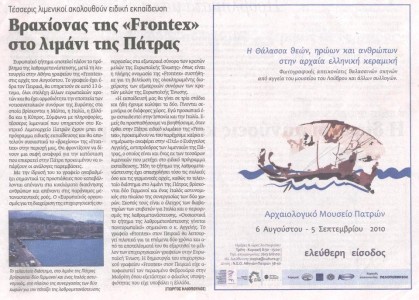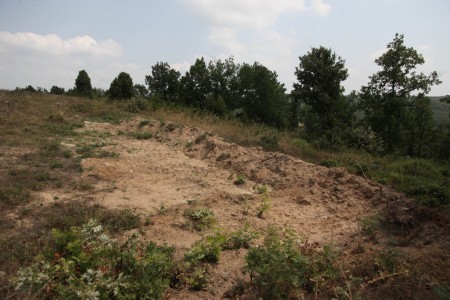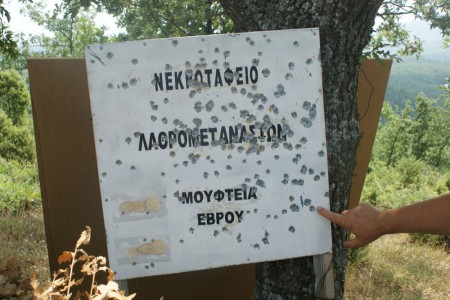Summer is coming, we are again going to Greece, you might want to join us. In the meanwhile, we updated this blog and put more information and analysis into it. With this post, we will provide a short overview (Blogs are so messy…)
Swarming Noborder: From the 27th of August to the 11th of September 2010, the Network Welcome to Europe will once again travel to Greece. Join us, come along, be part of it, or simply follow our activities and findings in this blog. If you want to know more, read all details of the Swarming Noborder Greece 2010. And of course, you can follow all our activities on this site.
Screening Centres: Apart from establishing an asylum agency, the Greek state also plans to introduce so called screening centres in the quest to reform and modernize the system of migration control. In this analysis, we look into the proposal.
Frontex in the Aegean: The Europe of Schengen strikes back. If Greece cannot stop the migration flow, the European Union has a dedicated agency most happy to step in: Frontex, the European border agency. What are doing, what are they up to? Find out in our analysis.
Interviews: Milad, a friend of ours from last year’s noborder tells us how his situation is in Sweden, how Dublin II pushed people all over Europe and continues to do so, and what he thinks needs to happen. In another interview, we talk to M., a 17-year-old Palestinian youth that was framed by Frontex in Samos. They had taken a picture of the boat he was using to cross over from Turkey and boldly claimed that he was the driver and hence smuggler. A court saw this differently.
Pagani – Villa Azadi – Dikili: Many questions reached us concerning the state of Pagani and other things that are going on in Lesvos. We put together a short update. Another update gives a longer report about what is going on in Lesvos these days.
Samos: w2eu will take to Samos. Why? What is happening there? What is the significance of the new detention centre there, and what is Frontex doing on the island? Find out!
Discourse Space: Amnesty International released a report about the detention of migrants and refugees in Greece, and it sheds not good light on the state of affairs. The European Court of Human Rights condemned Greece for the detention and maltreatment of a Palestinian refugee, while Greece itself calls for a suspension of Dublin II.
w2eu.info: This is the other website of the network welcome to europe, providing information about the state of Dublin II, Asylum, Migration in the different countries of the European Union and beyond. It is meant as a direct resource for all border-crossers out there that need to know where to go best, and what to do there.






